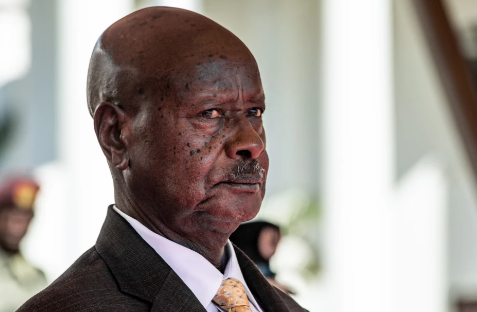Ugandan President Yoweri Museveni warned that protesters planning a banned anti-corruption march on Tuesday are “playing with fire.” In a televised address on Saturday, Museveni, who has led Uganda since 1986, stated that some participants were involved in illegal demonstrations and riots.
He also suggested that some protesters were working for foreign interests, though he did not provide further details. Earlier that day, Ugandan police informed the organizers that the planned protest in Kampala would not be allowed due to intelligence indicating that certain individuals were attempting to exploit the demonstration to incite chaos.
“Demonstrations can only be allowed under our mandate as long as they are not causing public disorder and disrupting lives of lawful citizens,” Ugandan police operations director Frank Mwesigwa told AFP.
The protest organisers told AFP they vowed to press on with the demonstration regardless.
“We don’t need police permission to carry out a peaceful demonstration,” one of the main protest leaders, Louez Aloikin Opolose, said Saturday. “It is our constitutional right.”
The protesters hope to take the march past parliament, which they accuse of tolerating corruption.
“Our starting point in the fight against corruption is parliament… and the demonstration is on irrespective of what police is saying,” protester Shamim Nambasa said.
Transparency International ranks Uganda low on its corruption perceptions index, placing it at 141 out of 180 countries, with higher rankings indicating less corruption. The anti-corruption protesters in Uganda have been monitoring similar, often violent demonstrations in neighboring Kenya, which have persisted for over a month.
Initially sparked by peaceful protests against controversial tax hikes, the Kenyan demonstrations have expanded into a broader anti-government movement addressing issues of corruption and alleged police brutality. Since the protests began on June 18, at least 50 people have been killed and 413 injured, according to the Kenya National Commission on Human Rights.


